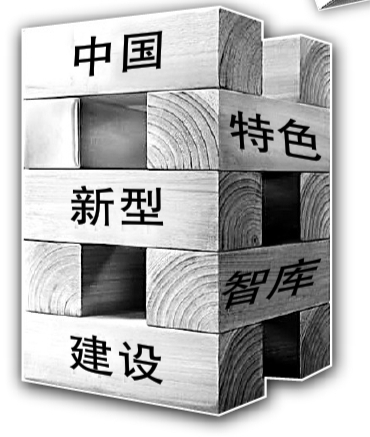New type of think tank to solve real problems

Scholars discussed the construction of new think tanks at the ninth Forum on the Frontiers of China's Social Sciences on Sept. 12 in Chengdu.
The ninth Forum on the Frontiers of China's Social Sciences opened on Sept. 12 in Chengdu, Sichuan Province. Co-hosted by the Social Sciences in China Press (SSCP) under the Chinese Academy of Social Sciences (CASS) and Sichuan University, the forum this year focused on "Construction of New Think Tanks and Studies of Philosophy and Social Sciences."
In his keynote speech, CASS President Wang Weiguang said building a new type of think tank with Chinese characteristics should adhere to guidelines, goals and principles defined by the central government. Think tanks should aim to advance the study of philosophy and social sciences while better serving the overall work of the Party and the country, he said.
Representatives from renowned Chinese universities and research institutions contributed to the topic. One of the primary subjects of discussion was methods of fostering synergy between think tanks.
The forum provides a synergetic mechanism for the field of social sciences, said Guo Jie, vice-president of South China Normal University.
In addition, collaboration between think tanks and other stakeholders also needs to be strengthened. “Lack of communication between academic institutions and government departments has long prevented social sciences from playing a practical role,” said Zhu Guanglei, vice-president of Nankai University. We should reform the existing system and make think tanks a platform for cooperation among colleges and universities, enterprises and the government, he added.
Liu Jianwu, president of the Hunan Academy of Social Sciences, offered advice on how to translate the research of think tanks into policy and practice. He said think tanks should provide real-time, diversified services to meet various needs of Party and government departments.
Liu mentioned several approaches, such as informing government departments of the latest research findings, participating in decision-making discussions, investigating social problems and including think tanks as a third-party evaluator.
Also, scholars at the meeting suggested improving the quality of think tank products and stimulating their endogenous growth momentum.
Sun Youzhong, vice-president of Beijing Foreign Studies University, said the essence of think tank construction is to enhance the ability of Chinese academics to address real problems.
Zhu also emphasized this point. He said think tanks should pay more attention to countermeasure studies while summarizing theory and methodology in the process. “All cultural powers are founded on the interpretation of its own problems.”
Gao Xiang, secretary-general of CASS and editor-in-chief of SSCP, said in his closing speech that the forum was a success. “It showed the awareness of academia about the better construction of think tanks and explored frontier issues in this area.” The forum presented an opportunity for sharing experience and fostering ties, which will promote cohesion within philosophy and social sciences, he said.
Mao Li and Zeng Jiang are reporters at the Chinese Social Sciences Today.
